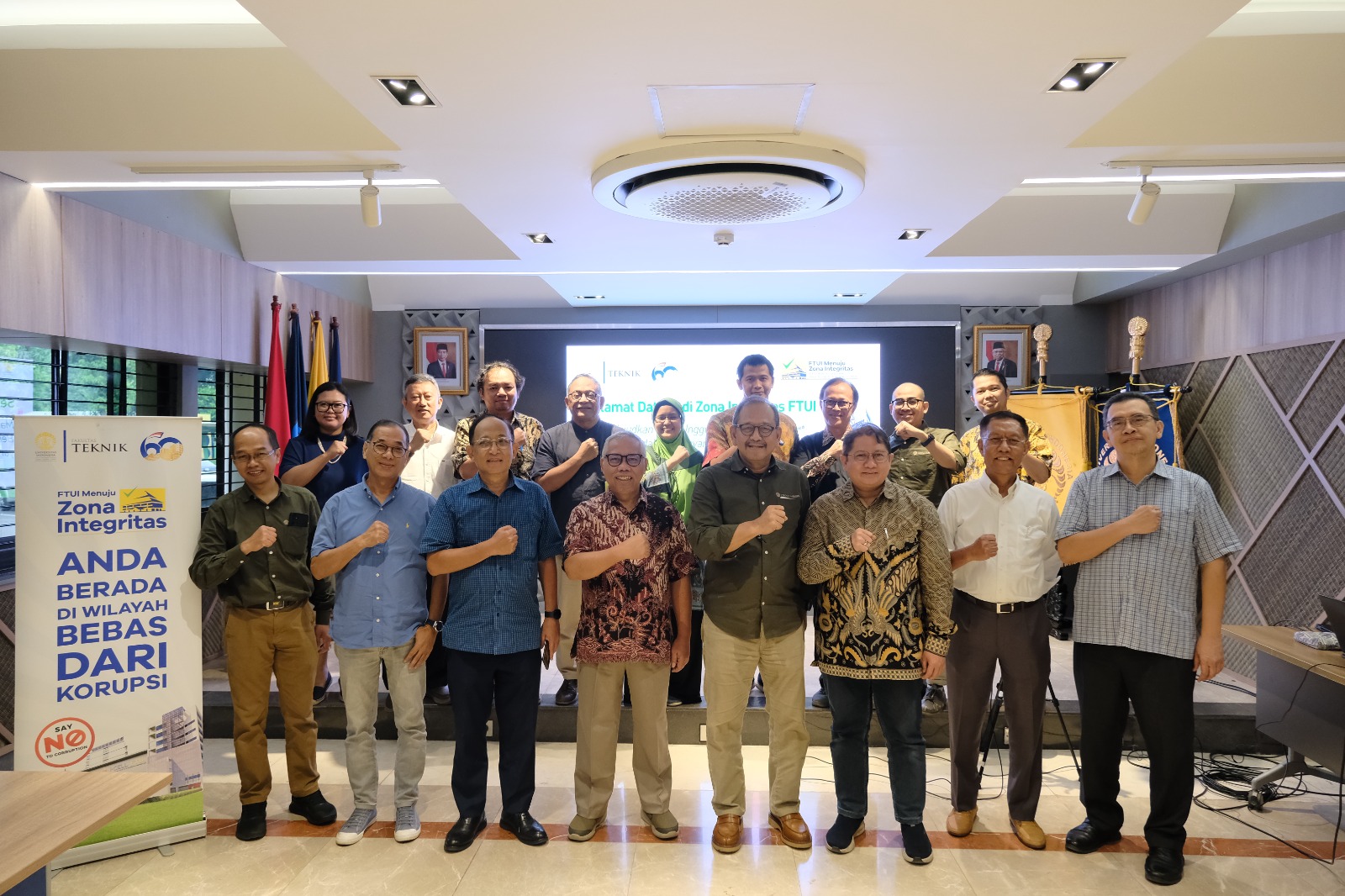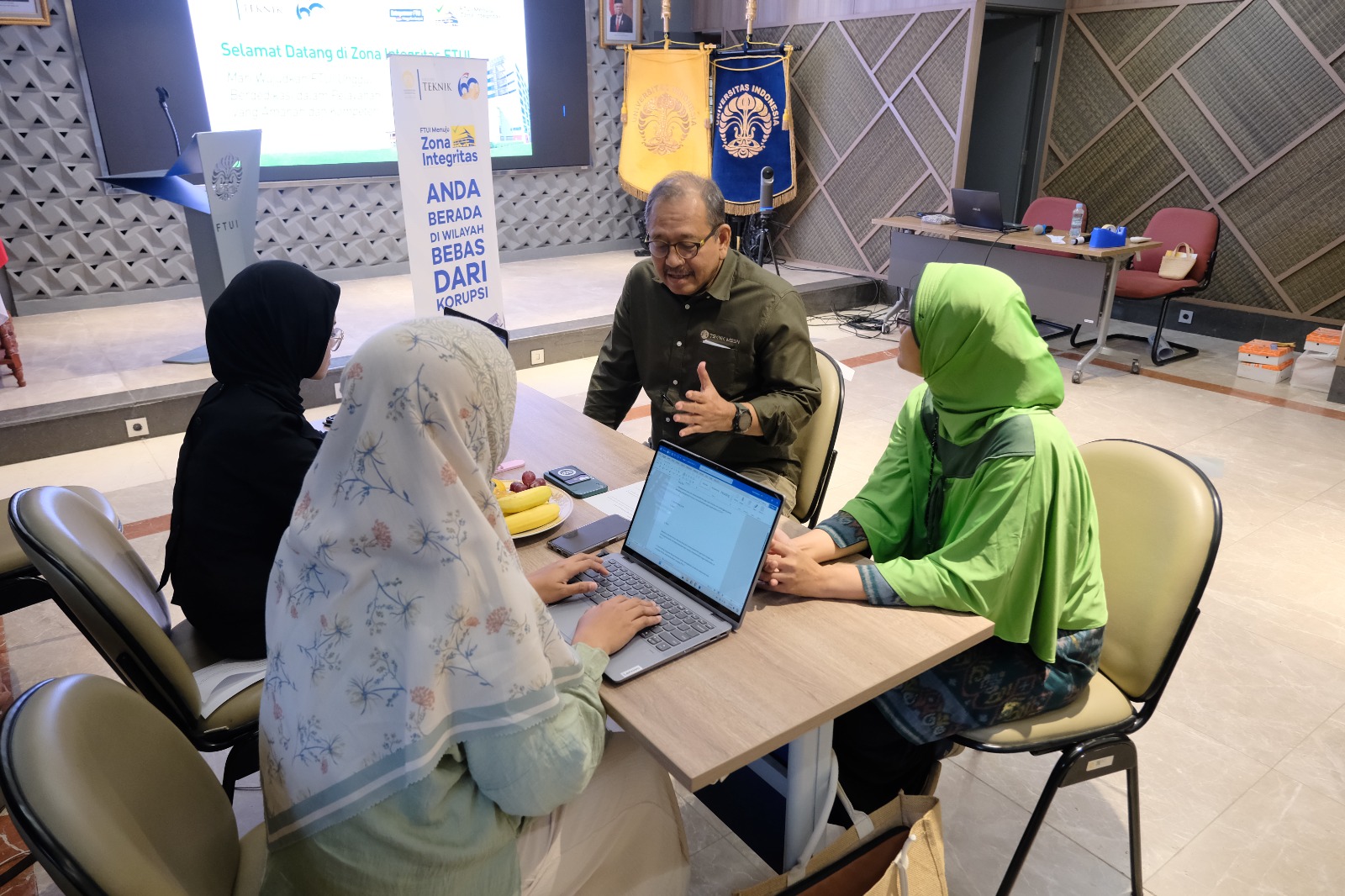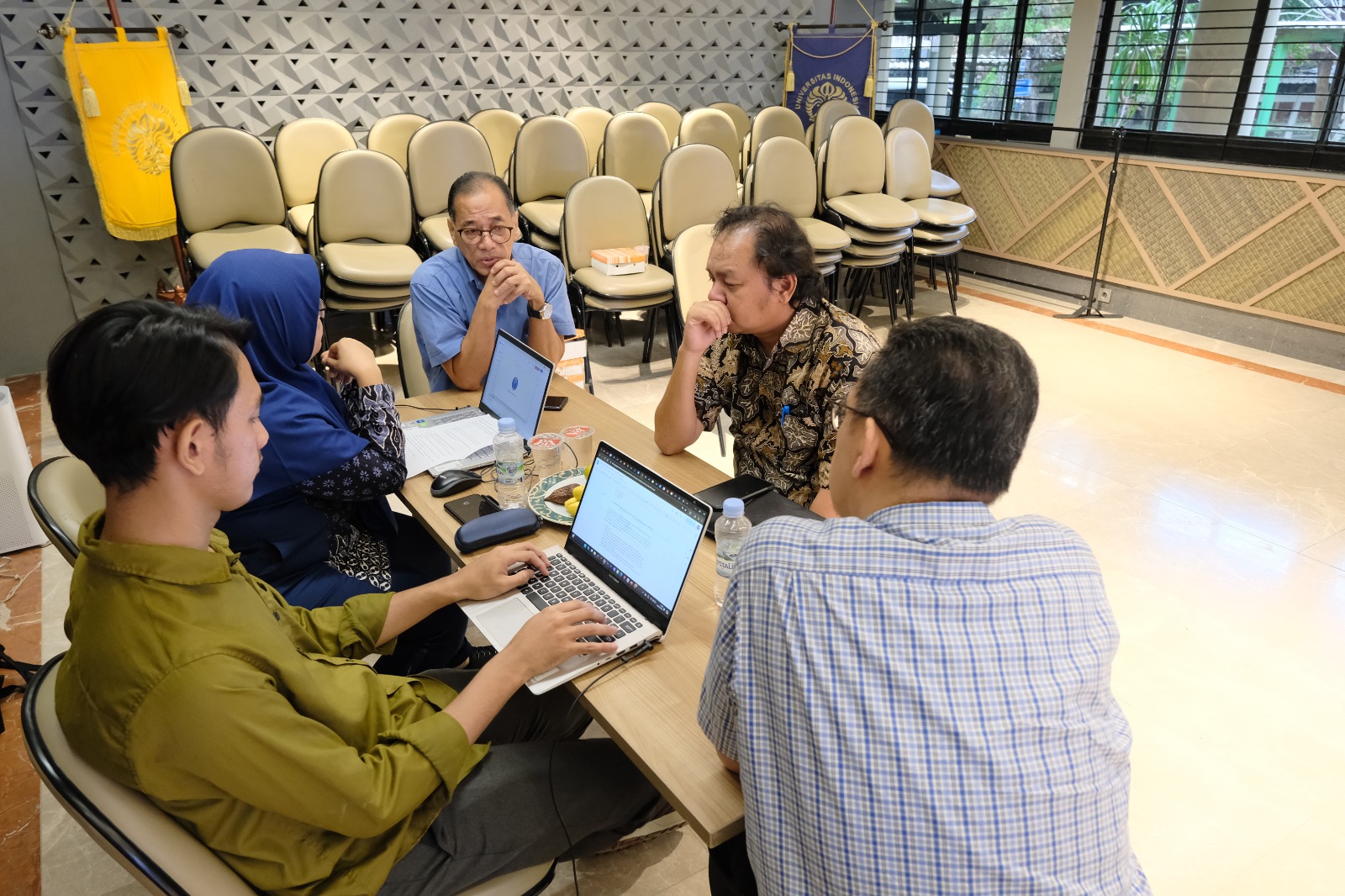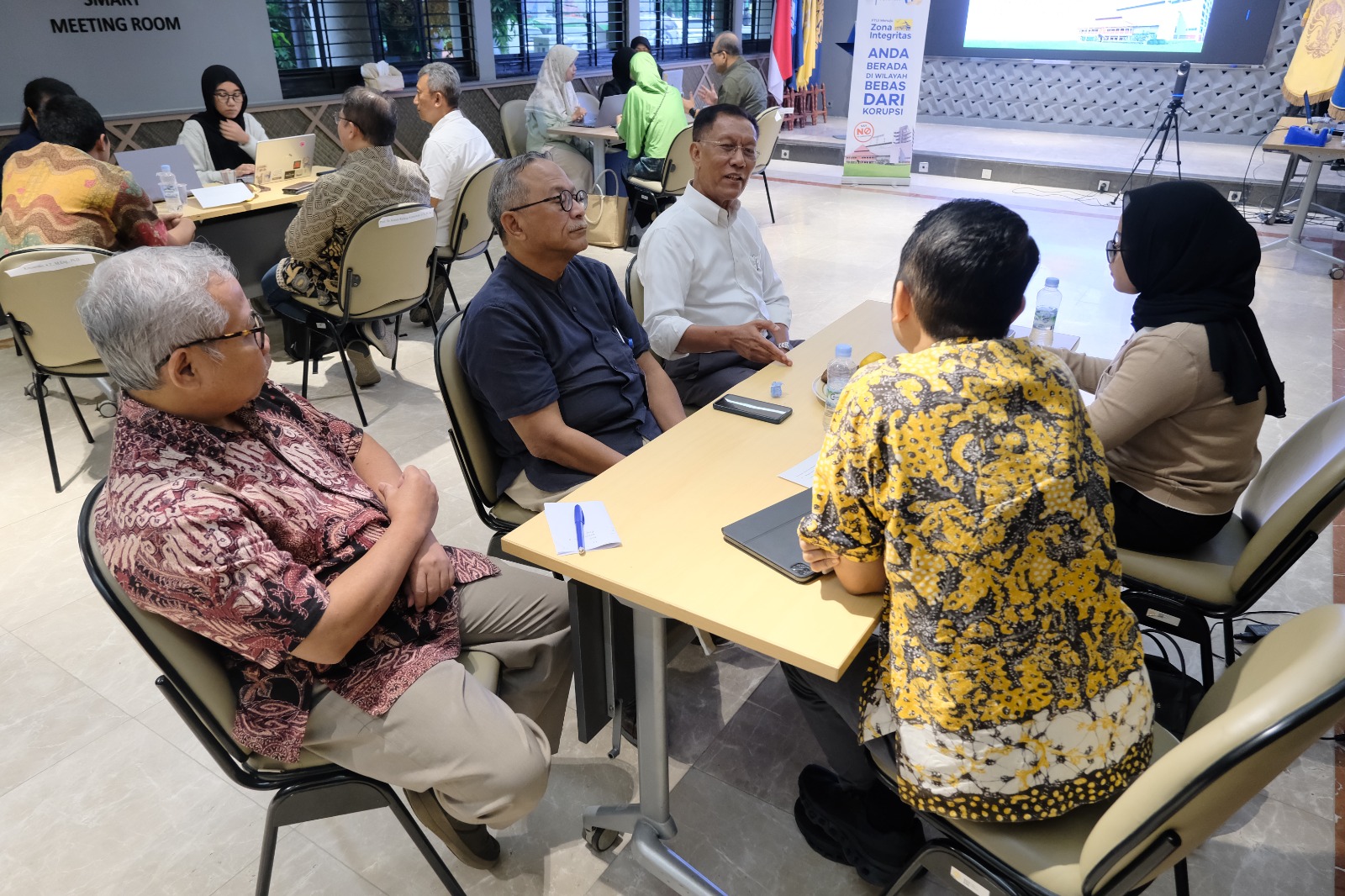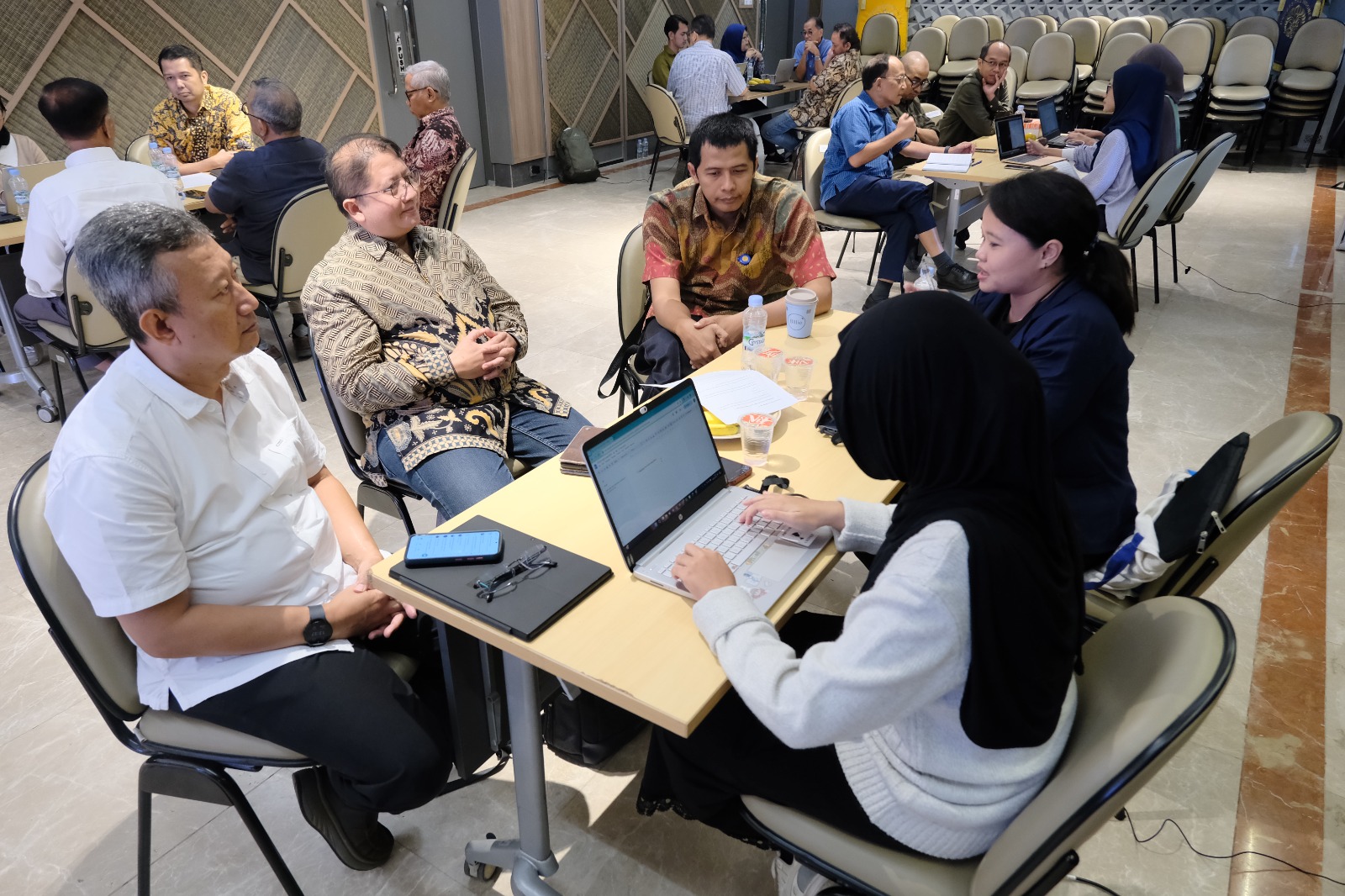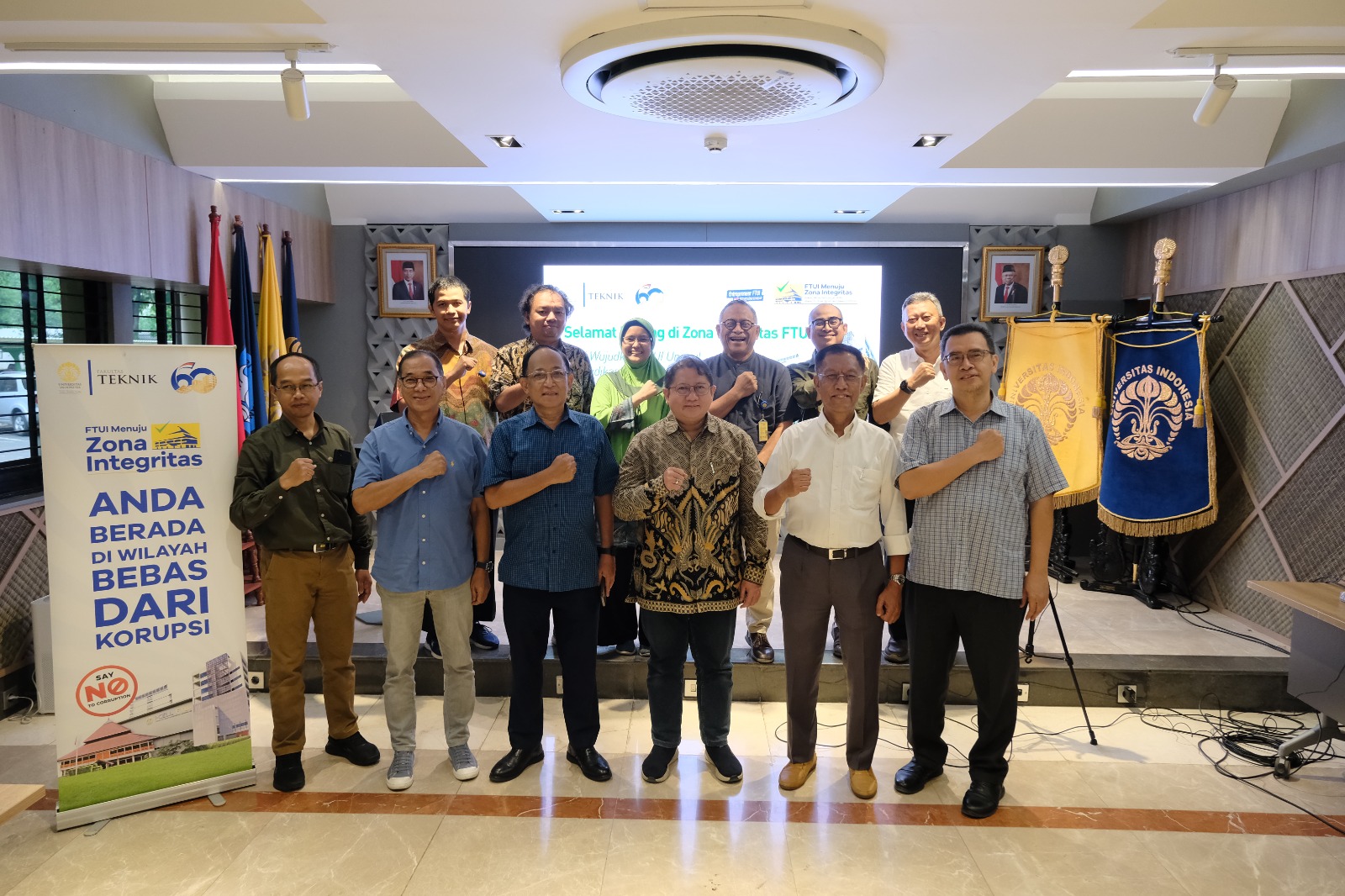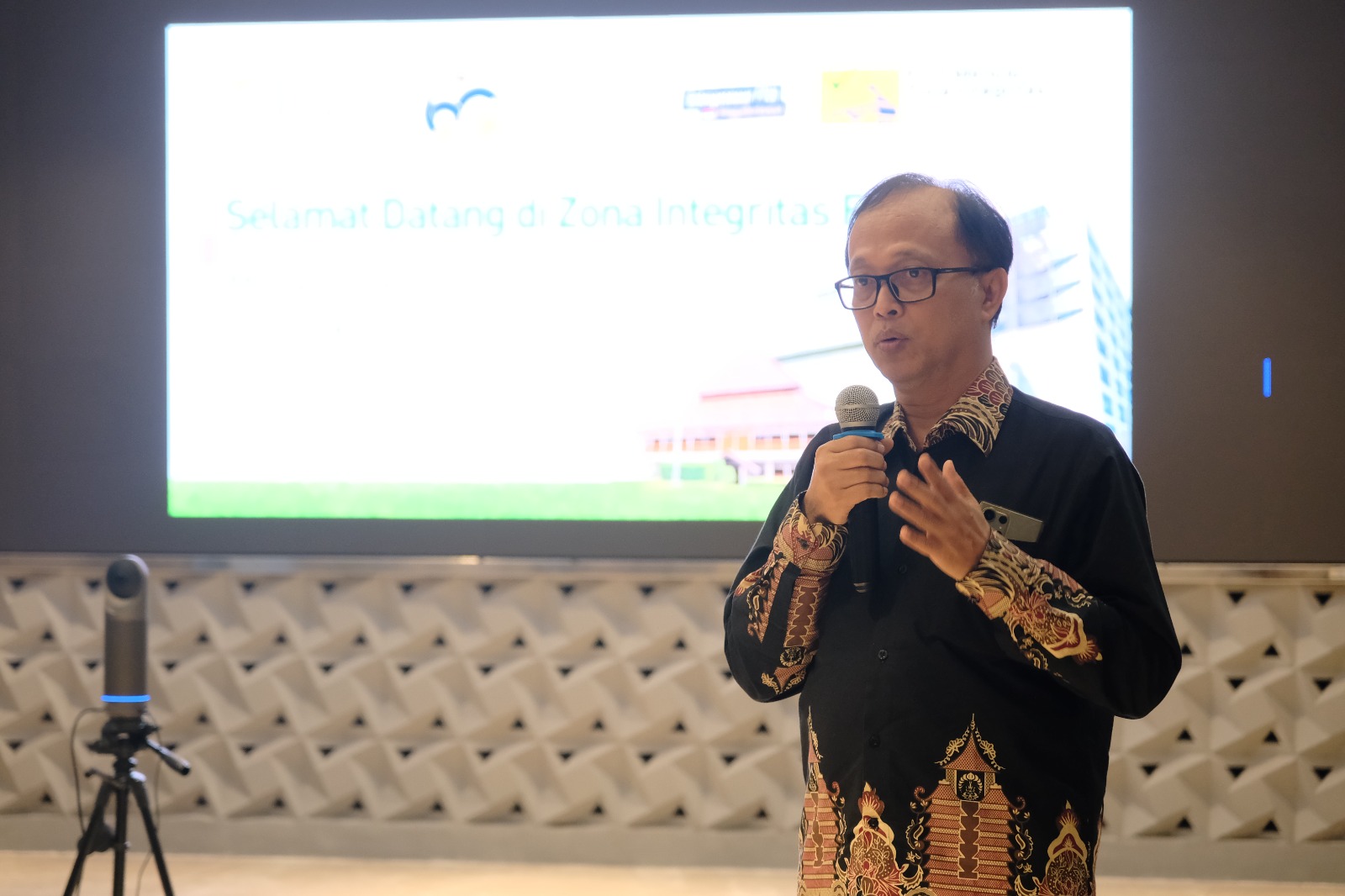The Integrity Zone (ZI) is a designation given to government agencies whose leadership and staff are committed to creating Corruption-Free Areas (WBK) or Clean and Serving Bureaucracy Areas (WBBM) through bureaucratic reform, especially in preventing corruption and improving the quality of public services. As part of a government institution, FTUI is also establishing a ZI. One concrete example is the Focus Group Discussion (FGD) with the Role Model and Change Agents Team of the Faculty of Engineering, Universitas Indonesia (FTUI), held on June 4, 2024.
This event was attended by FTUI ZI Role Models: Prof. Ir. Mahmud Sudibandriyo, M.Sc., Prof. Dr. Ir. Yanuar, M.Eng., M.Sc., and the FTUI ZI Change Agents Team: Prof. Dr. Kemas Ridwan Kurniawan, S.T., M.Sc., Prof. Dr. Yudan Whulanza, S.T., M.Sc., Prof. Ir. Yulianto S. Nugroho, M.Sc., Ph.D., Prof. Dr. Ir. Budi Susilo Soepandji, DEA, Prof. Dr. Ir. Sutanto, M.Eng., Prof. Ir. Rinaldy, M.Sc., Ph.D., Ayomi Dita Rarasati, S.T., M.T., Ph.D., Dr. Agus Sunjarianto Pamitran, S.T., M.Eng., Dr. Deni Ferdian, S.T., M.Sc., Dr. Ir. Achmad Hery Fuad, M.Eng., Dr. Bambang Heru Susanto, S.T., M.T., Dr. Komarudin, S.T., M.Eng., and Prof. Dr. Ir. Harinaldi, M.Eng., ZI FTUI Coordinator for Lever 1, along with other members of Lever 1.
“I would like to thank the attendees of today’s focus group discussion. Hopefully, this event can enhance the Integrity Zone within FTUI. I hope this focus group discussion can proceed smoothly,” said Prof. Mahmud in his opening remarks.
This event is part of the series of activities that must be carried out and is included in Activity P1 in the Integrity Zone. P1 relates to change management. In this context, P1 aims to explore how institutions implement changes to achieve ZI goals.
“To implement changes, we are required to have change agents and role models. These selected change agents and role models are figures who play significant roles in bringing about changes in their daily activities within the Faculty of Engineering,” explained Prof. Harinaldi during his presentation on the technical execution of the FGD.
He continued, “From this FGD, we want to gather insights through interviews. We have prepared questions that will be asked during the interviews. Although the interviews are mandatory, I hope the discussions can flow naturally. We will record the discussions and create a summary, which will be submitted to the portal to follow the Integrity Zone.”
After the implementation guidelines presentation, the next event was the focus group discussion, which was the core activity. Participants were divided into five groups, each consisting of three people.
Questions posed to the role model team and change agents were classified into two sections: mindset and work culture. Some of these questions included:
1. How do you direct the academic community’s mindset to be more disciplined and responsible for their work and complete tasks on time at FTUI?
2. What are your thoughts on the implementation of the integrity zone at FTUI?
3. As a role model or change agent, what will you do in the future to enhance FTUI’s commitment to the integrity zone?
On a separate occasion, Prof. Dr. Ir. Heri Hermansyah, S.T., M.Eng., IPU., Dean of FTUI, stated, “FTUI has been committed to creating an Integrity Zone since 2022. We will continue to uphold this commitment by complying with regulations and promoting ZI to the Engineering community. I invite the entire Engineering community to support FTUI in achieving the Integrity Zone.”
***
Public Communication Office
Faculty of Engineering, Universitas Indonesia

